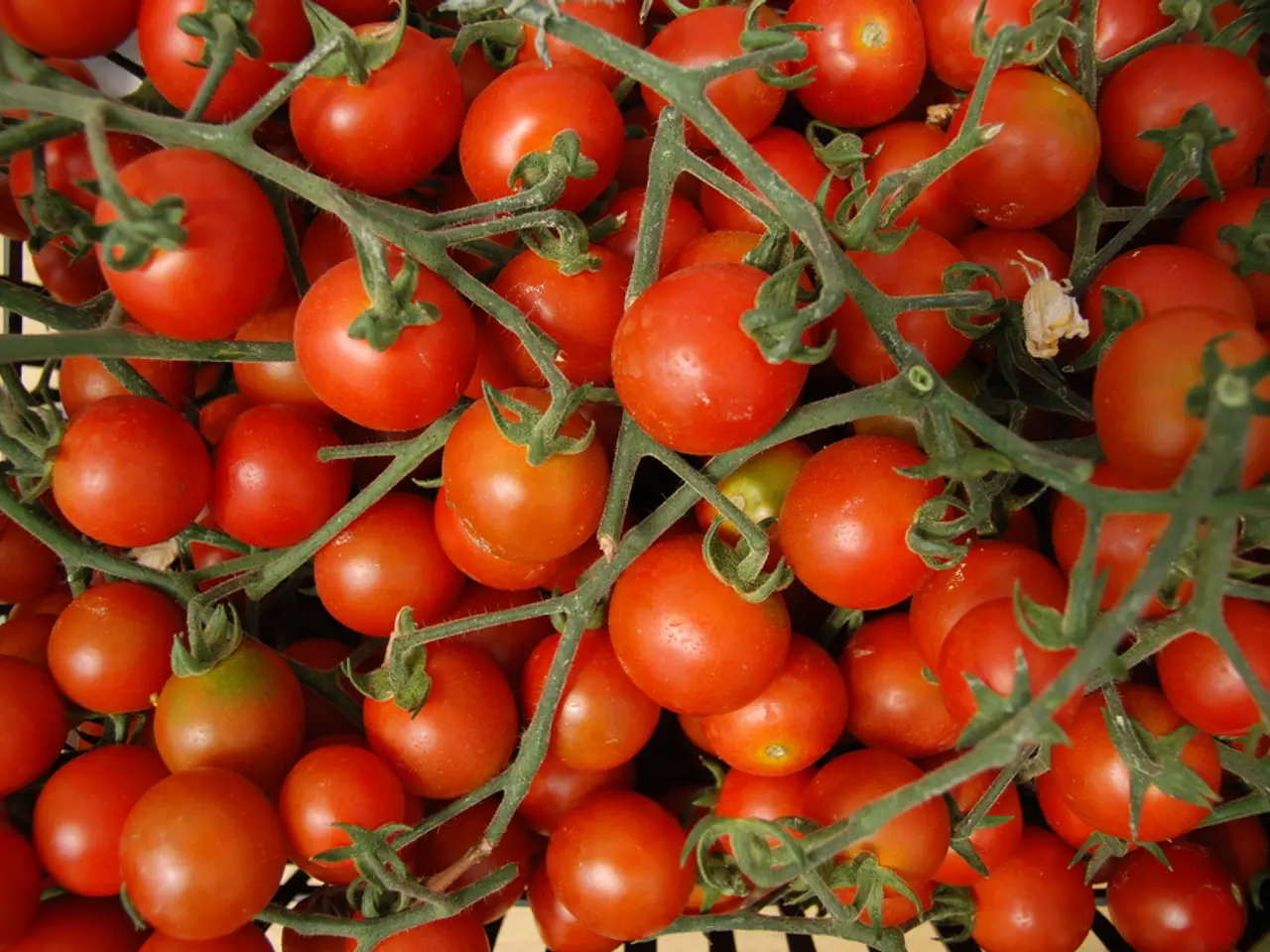Investment consortium made up of Turkish and Polish companies to construct a 120 million dollar tomato greenhouse facility within Kazakhstan's borders
Turkish-Polish Partnership Invests $120 Million in Kazakhstan's Greenhouse Sector
A significant investment is set to transform Kazakhstan's agricultural landscape, as a Turkish-Polish partnership led by Sine Midas Stroy and Fabe Agro plans to establish a large-scale tomato greenhouse complex in Shymkent. The joint venture aims to produce 36,000 tons of tomatoes annually, marking a significant step towards Kazakhstan's ambition to become a competitive exporter in the regional fresh produce market.
The $120 million investment, which represents the total estimated cost of the project, will be used to develop a 144-hectare site, consisting of seven greenhouses and a nursery. The project, a public-private partnership, will be among Kazakhstan's first modern industrial-scale tomato production facilities.
The draft investment agreement is currently being developed to define the implementation process, investment volume, and the obligations of each party. Kazakhstan's Agriculture Minister Aidarbek Saparov has expressed support for the initiative via social media.
Sine Midas Stroy and Fabe Agro's collaboration is not their first joint venture. The companies have previously worked together on Poland's S7 motorway and completed real estate projects in Turkey and Kazakhstan. Sine Midas Stroy has also been active in Kazakhstan for years, primarily in highway construction, having worked on key road projects such as the Atyrau-Kulsary, Almaty-Korday-Merke, and Almaty-Horgos routes.
Meanwhile, Fabe Agro, the agricultural subsidiary of Polish infrastructure company Fabe Polska, is making its first investment in Kazakhstan's greenhouse sector through this project. The partnership also aligns with Kazakhstan's government's long-term strategy for developing its agricultural sector.
Other Turkish companies are also making sizeable investments in Kazakhstan's agricultural sector. For instance, Turkish agribusiness firm Tiryaki Agro, in partnership with Qatar's Hassad Food, is investing $320 million to construct Kazakhstan's first integrated grain and legume processing plant in Astana's Baykonur district.
Moreover, the Turkish conglomerate Alarko announced a $650 million plan to build a greenhouse and processing facility in Shymkent, designed to produce 51,000 tons of agricultural goods annually and create around 2,000 jobs. YDA Group, another Turkish company, also plans to construct a fertilizer manufacturing plant in Kazakhstan, though the specific location is yet to be announced.
As these investments take root, Kazakhstan's agricultural sector is poised for significant growth, with the total value of investments by Turkish companies in the country surpassing $1.2 billion. The greenhouse complex project, scheduled to be signed and implemented in the coming days, is a testament to this growing partnership and Kazakhstan's commitment to modernising its agriculture industry.
- The Turkish-Polish partnership, which includes Sine Midas Stroy and Fabe Agro, is set to make a significant investment in Turkey's real-estate sector, as they previously completed projects in the country.
- The Turkish Lira might play a role in the financial aspects of these investments, as Turkish companies, like Tiryaki Agro and Alarko, are pouring millions into Kazakhstan's agricultural sector.
- The government of Turkey might also be keeping a close eye on these investments, as they align with Kazakhstan's long-term strategy for developing its agricultural sector.
- The manufacturing industry in Kazakhstan could see a boost from these investments, as companies like Alarko plan to build greenhouse and processing facilities in the country.
- The business environment in Kazakhstan seems conducive to foreign investments, as evidenced by the growing partnership between Turkish and Polish companies in the country's greenhouse sector.








